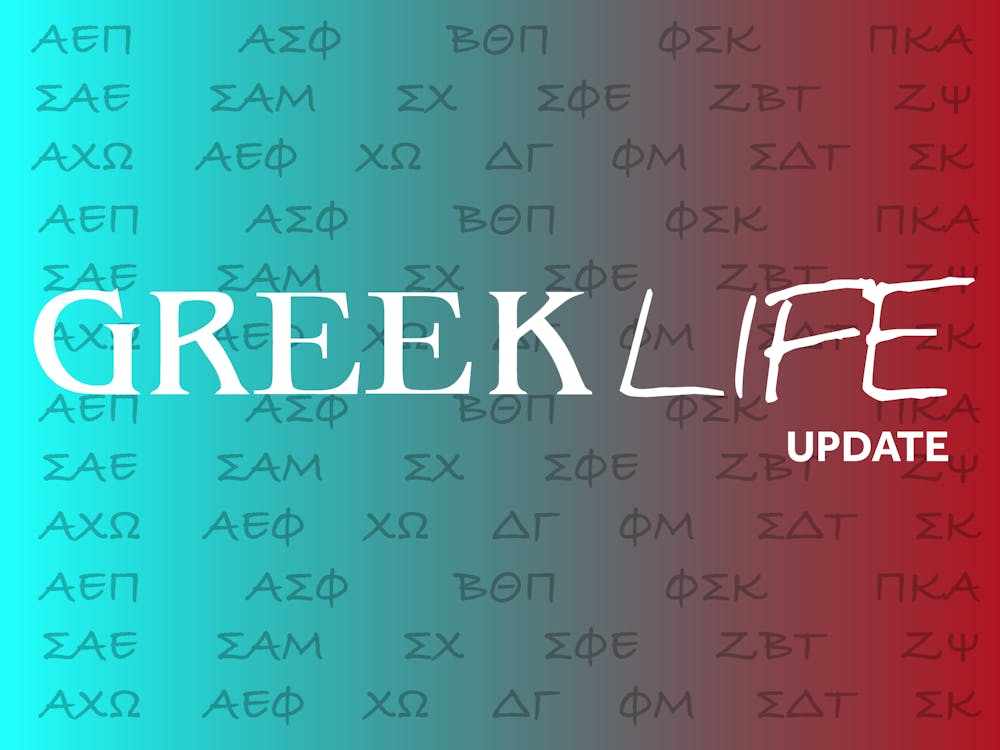Editor's clarification: This article has been updated to clarify that the representative from HPAC that IFC met with was Valerie Tovar.
After American University’s Interfraternity Council (IFC) received criticism from students about its short-term reform plan released in January, it published its long-term plan Thursday, months after outcry on social media arose over racism and sexual misconduct in social Greek life.
In the beginning of the spring semester, IFC released an “immediate reform plan” which was meant to improve internal operations within the organization, specifically involving how alleged violations would be handled, a new member development position and the formation of a Diversity, Equity and Inclusion (DEI) Committee.
Students expressed concern over whether these plans would actually be implemented and wondered how specific the policies would be. In March, they announced they were drafting a long-term plan and creating policies that would relate more to students’ concerns. One of the main ones expressed by students was how the IFC would “police” fraternities following accusations of alleged sexual assault at fraternity parties.
College of Arts and Sciences freshman Qudsia Saeed was skeptical about whether the IFC’s plan will actually do what it intends. She doesn’t believe a plan will solve the problems.
“I just don’t think it's sustainable, and it’s the system that’s broken and it feels like a way to play around it and that bothers me,” Saeed said.
IFC President Justin Colman said it’s not the IFC’s responsibility to police individual students who are accused of misconduct. Legally, Colman said the IFC cannot be alerted in any way, thus they cannot hold individuals accountable. However, he said their plan would hold chapters accountable.
In the long-term plan, the IFC outlines policies that it believes will hold chapters accountable and prevent sexual misconduct in the future. New policies include mandatory Title IX training each semester, mandatory risk management and bystander intervention training and an accountability policy which will refer chapters to a judicial board if they do not follow or meet the requirements of the new procedures.
Leila Akinwumiju, a freshman in the School of International Service, said that the IFC’s previous immediate plans seemed inadequate in the face of such a large issue.
“A lot of what happens, like the hazing and substance abuse issues, they mostly happen informally right?” she said. “No fraternity member is gonna go on a black-out binge, and go to the IFC president and say ‘I went on a black-out binge.’”
The long-term plan also requires chapters to attend the IFC’s programming events, which will focus on collaboration between fraternities for best practices, and to promote campus unity and inclusivity. The policy requires that each chapter attend at least one of the IFC’s programming events with at least 75 percent of its members.
The IFC also implemented a self-governance policy in order to hold chapters accountable in the case of a violation or inaction through the Judicial Board. However, the violations the IFC will oversee are likely to only be minor misconduct cases within the legal parameters that the IFC has jurisdiction over.
In order to report any violations or misconduct from the student body, the IFC will create a publicly available website by August 2021 with reporting methods and resources such as links to CARE Reports and guidance on how to report violations and incidents. All AU students will have access to the site.
The plan also emphasized working with campus stakeholders, like the Health Promotion and Advocacy Center, the Center for Diversity and Inclusion, the Equity and Title IX Office and Student Conduct & Conflict Resolution Services.
However, the director of HPAC, Pritma Irizarry, said the office has not been in direct contact with the IFC since the summer. She said they previously worked with them to send out videos to chapters on how to deal with issues such as substance misuse.
“Many chapters actually requested follow-up sessions for further discussion on said issues,” Irizarry said.
Colman said that the IFC had been previously working with Valerie Tovar, the former sexual assault prevention coordinator, at the beginning of the spring semester. Tovar left the University in February. “We are looking to find a new point of contact in HPAC,” Colman said.
Other offices such as the Office of Fraternity and Sorority Life (FSL) and the Office of Student Conduct & Conflict Resolution were in contact with the IFC in creating the short and long-term plans, according to Director of Public Affairs Stacie Burgess.
“Making connections is the biggest thing we’ve done,” Colman said, adding that the IFC plans to “change from the inside out.”
Colman also emphasized how he would like to see more engagement from the non-Greek life student body through the office hours the IFC holds.
“I definitely do think that having regular meetings with someone who is not in Greek life is beneficial,” Colman said.
However, some students, like Saeed, expressed discomfort in reaching out to the IFC directly.
Colman said he is proud of the IFC’s actions since there were no systems in place previously to solve sexual misconduct issues within Greek life.
“There was no policy,” Colman said. “All there was when I joined was a constitution.”





